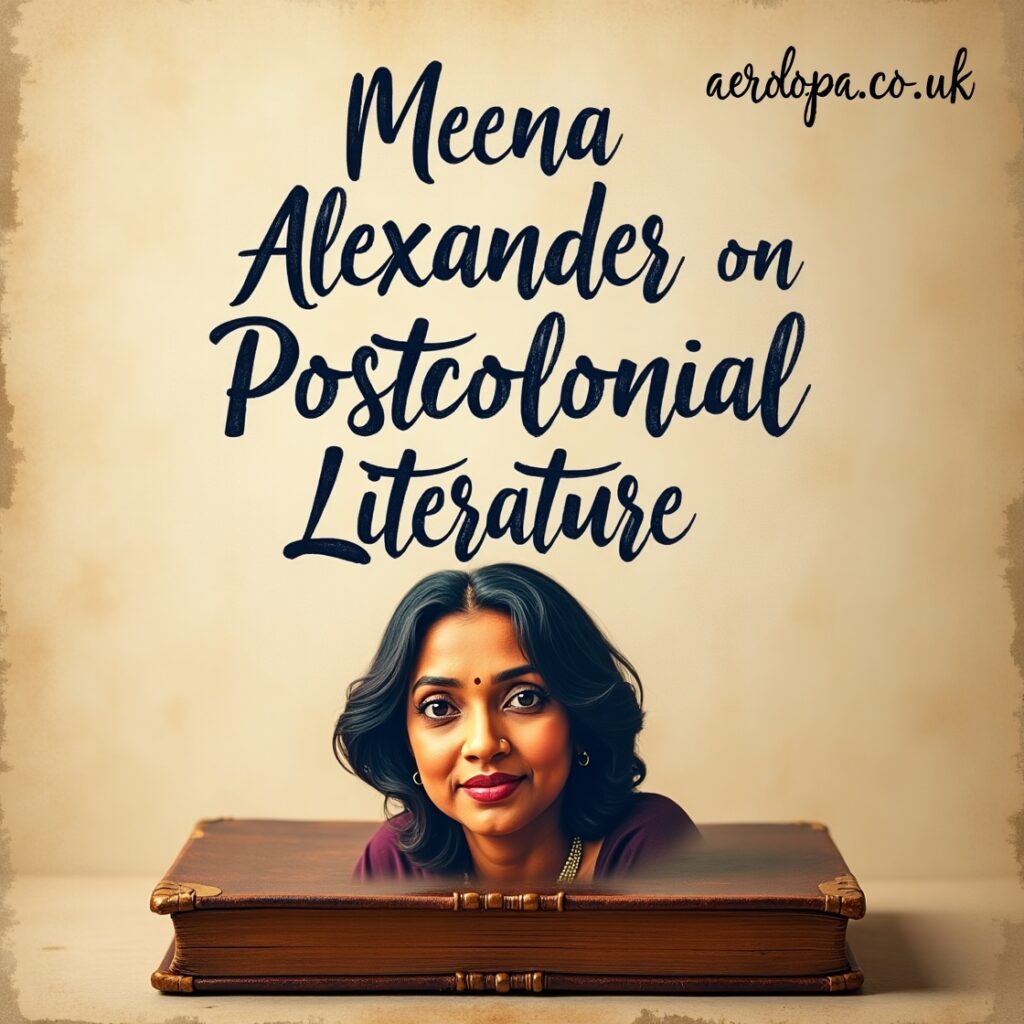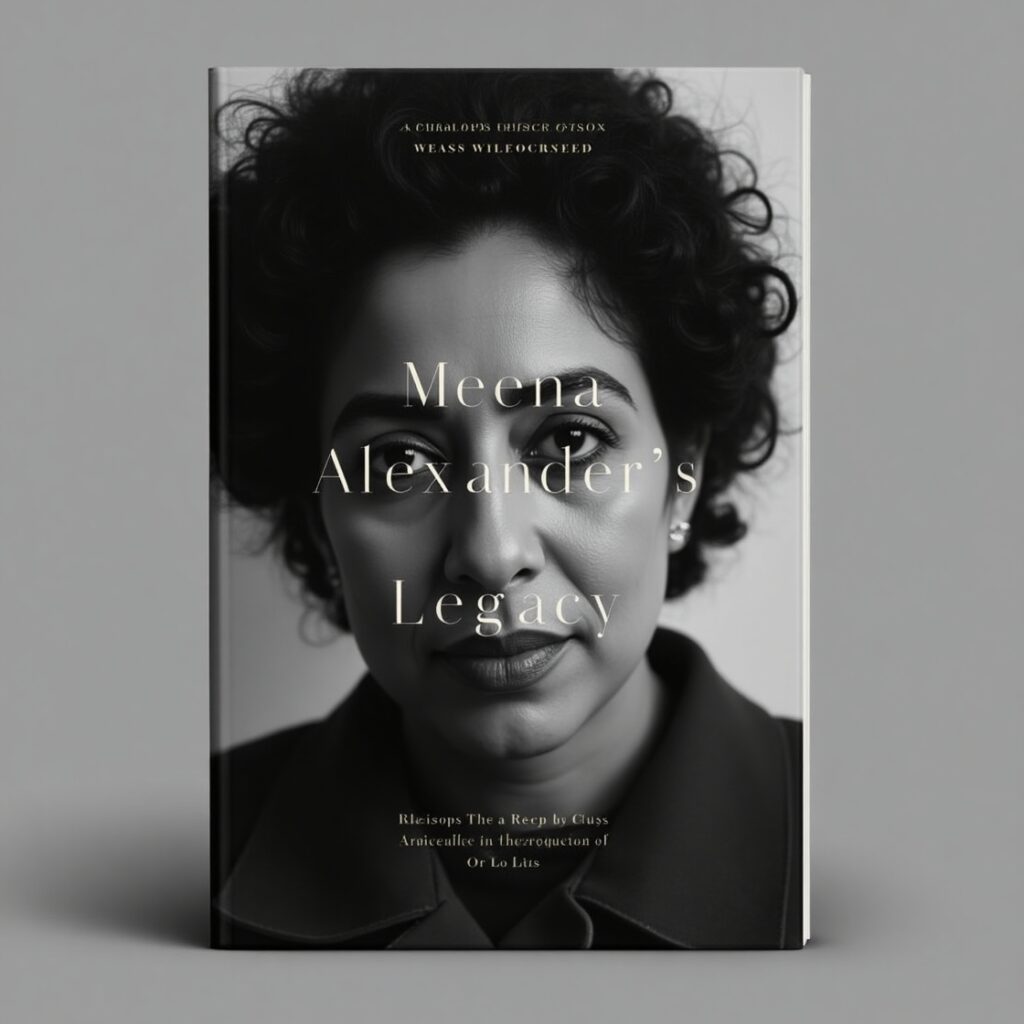Meena Alexander was a celebrated poet, writer, and scholar known for her thought-provoking exploration of migration, identity, and exile. Her literary contributions spanned poetry, fiction, and essays, making her one of the most influential voices in postcolonial literature. With a career that stretched across continents, Meena Alexander’s works have inspired generations of readers and writers. This article delves into her life, literary achievements, and the profound impact she had on contemporary literature.
Early Life and Education

Meena Alexander was brought into the world February 17, 1951 in Allahabad, India. Her early life was characterized by continuous transmission because of her father’s work, which took the family to Sudan. This early performance for different cultures had a permanent impact on its literary vision, which affects the discovery of subjects such as displacement, related and identity.
At the age of only 18, Meena Alexander graduated from Khatum University in Sudan. She then moved to England, where she pursued her doctorate in English and French literature at Nottingham University. These educational experiences shaped their understanding of colonial and respond to colonial narratives, which affect the direction of their authorship.
Career and Literary Contributions
Poetry and Themes
Meena Alexander’s poem is deep introspection and emergence, reflecting their experiences of migration, exile and cultural hybrids. He effectively mixed autobiographical elements with political and historical contexts, making his poem individually and universally reliable.
Her poetry collections include:
- “Stone Roots” (1980) – a collection that examines themes of memory, heritage and loss.
- “House of a Thousand Doors” (1988) – a powerful work that reflects exile, feminism and identity.
- “Illfabeter Heart” (2002) – The winner of the Pen Open Book Award, this collection delays the subjects language, displacement and femininity.
- “Fast Changing River” (2008) – a lyrical discovery and identity of migration.
His poem often holds his Indian roots with his migrant experiences, making a poignant reflection on what it means.
Fiction and Essays
Apart from poetry, Meena Alexander also made significant contributions to fiction and critical essays.
- “Nampally Road” (1991) – A novel set in India that follows a young woman’s return to her homeland and her encounters with political unrest. The novel highlights issues of gender, oppression, and activism.
- “Manhattan Music” (1997) – A novel that explores the lives of immigrants in New York City, weaving together multiple narratives to highlight the complexities of cross-cultural existence.
- “The Shock of Arrival: Reflections on Postcolonial Experience” (1996) – A collection of essays where she examines issues of exile, memory, and identity from a feminist and postcolonial perspective.
Her writings often focused on women’s voices, the immigrant experience, and the interplay between language and identity, making her work essential reading for those interested in global literature.
Recognition and Awards
Meena Alexander’s literary contributions earned her numerous accolades and recognitions. Some of the most notable include:
- PEN Open Book Award – For her poetry collection Illiterate Heart.
- Representative Achievement Award – from the South Asian Literary Association for his contribution to literature.
- Gugneheim Fellowship – honored for his extraordinary work in poetry.
His poetry and prose have been translated and translated into many languages, which strengthens his position as an influential literary person.
Meena Alexander’s Impact on Postcolonial Literature

Meena Alexander’s work is deeply stated in the post -colonial discourse, and detects topics about migration, cultural heritage and gender experiences of exile. As a poet and learned, he looked up many worlds, and wrote in a way that he spoke with both personal and collective history.
Feminist and post -colonial perspectives
An important aspect of Meena Alexander’s work was her feminist perspective. She wrote a lot about women’s struggle, agency and flexibility, often binds them with widespread topics with post -colonial displacement. His poetry and prose reflect the intersections between gender, identity and migration, offering a rich and nice criticism of patriarchy and colonial history.
Influence on Diaspora Literature
As an Indian original author who lived in the United States, Meena Alexander’s experiences formed their literary themes as an immigrant. He discovered the challenges of living among the cultures, and caught the emotional and psychological effects of migration. His compositions are relevant in today’s globalized world, where questions of displacement and identity continue to resonate.
Meena Alexander’s Legacy

Meena Alexander died November 21, 2018, but her literary heritage continues. He is still a leading voice in contemporary poetry and post -colonial literature, and inspires inspiring authors who navigate questions about migration and identity.
Constant relevance
His poetry and prose are studied at universities around the world, where students and scholars examine their practical reflections on identity, language and related. As several interactions emerge around migrant and globalization, Meena Alexander’s work is still a powerful will for the human experience of exile and self -awareness.
Conclusion
Meena Alexander was not just a poet – he was a storyteller, a worker and a scholar, whose words resonate for generations. Through his poetry, history and essay he expressed the complications of identity, migration and gender. His contribution to post -colonial and feminist literature is invaluable, and his influence on the global literary discourse is undisputed.
Whether his developed poems or its practical essays, Meena Alexander’s words act as a lighthouse for those navigating in culturally related and self -realization.
